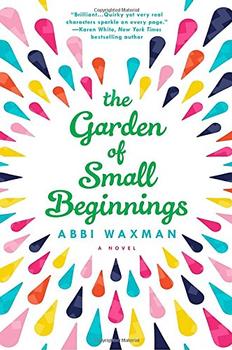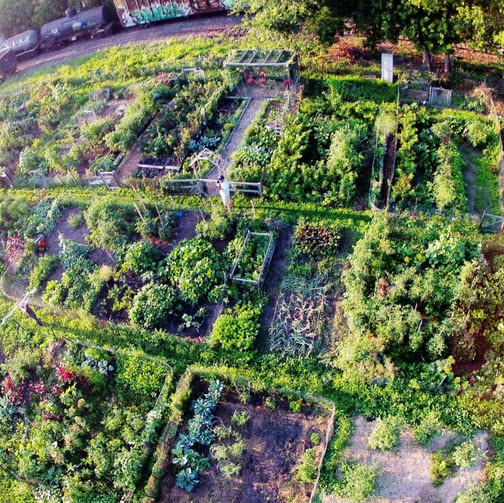Summary | Excerpt | Reading Guide | Reviews | Beyond the Book | Read-Alikes | Genres & Themes | Author Bio

This article relates to The Garden of Small Beginnings
In The Garden of Small Beginnings, the book's heroine becomes involved in a community garden.
 A community garden is generally a piece of public land set aside for use by individuals who don't have the real-estate or resources to create gardens of their own. Although the idea of a shared planting space has been around for centuries, the concept as we think of it now took firm hold in the United States during World War II when local governments encouraged the creation of "victory gardens" to help with personal food production.
A community garden is generally a piece of public land set aside for use by individuals who don't have the real-estate or resources to create gardens of their own. Although the idea of a shared planting space has been around for centuries, the concept as we think of it now took firm hold in the United States during World War II when local governments encouraged the creation of "victory gardens" to help with personal food production.
Today, community gardens have evolved to mean different things to different people or organizations. Some, like the Clinton Community Garden in Manhattan, are works of art – greenspaces carefully designed to provide natural areas for citizens and tourists. Others may be, in essence, urban farms collectively worked by a number of people who share in the resulting harvest. More frequently, though, the land is divided up into small plots that are then allotted to individuals for a small fee, allowing them to plant whatever they choose. Although the obvious motive for tending a community garden is to have access to a source of fresh and healthy food, it is also about providing a much-needed break from urban living, allowing residents to re-connect with the soil and nurture their souls as well as their bodies and, often, form connections with their neighbors leading to stronger community bonds.
The United States saw a renewed demand for community gardens in the 1970s resulting from cuts in social service financing. It was thought that this type of garden could provide much needed food to countless individuals. Thousands of programs cropped up across the country, developed under the auspices of organizations such as municipal parks departments, nonprofits, churches, schools, social service agencies and neighborhood associations. Unfortunately, many of them were started by well-intentioned people who were ill-equipped to navigate the political complexities of maintaining this type of program (especially bringing in needed funding) so many failed.
Realizing the benefits of community gardening, the City of Chicago Department of Human Services hosted two national conferences on the topic in 1978 and 1979. Those sessions resulted in a National Community Task Force, which formed the American Community Gardening Association (ACGA) in 1982, a bi-national, nonprofit organization with a 16-member board of regional directors.
Today, the ACGA is the primary advocacy group for community gardening in the US and Canada. Its stated mission is "to build community by increasing and enhancing community gardening and greening across the United States and Canada." Further, "the Association recognizes that community gardening improves people's quality of life by providing a catalyst for neighborhood and community development, stimulating social interaction, encouraging self-reliance, beautifying neighborhoods, producing nutritious food, reducing family food budgets, conserving resources and creating opportunities for recreation, exercise, therapy and education."
The ACGA works with communities to get gardens started, funded, and keep them running once they're up. In addition to education and advocacy, they hold regional training workshops, produce publications, and hold annual conferences. Their web site is a wonderful resource, providing a discussion forum for individual members on everything from the difficulties of creating a community garden to how to grow specific plants. It also has a page for national events, as well as a community garden finder that shows the community gardens near a person's location and links to information about the garden of interest. Finally, their web site also publishes interesting articles with information such as tips for community garden organizers.
Part of the St Anthony Park Community Garden in St. Paul, MN
by Kim Kovacs
Filed under Society and Politics
![]() This article relates to The Garden of Small Beginnings.
It first ran in the May 31, 2017
issue of BookBrowse Recommends.
This article relates to The Garden of Small Beginnings.
It first ran in the May 31, 2017
issue of BookBrowse Recommends.
Courage - a perfect sensibility of the measure of danger, and a mental willingness to endure it.
Click Here to find out who said this, as well as discovering other famous literary quotes!
Your guide toexceptional books
BookBrowse seeks out and recommends the best in contemporary fiction and nonfiction—books that not only engage and entertain but also deepen our understanding of ourselves and the world around us.